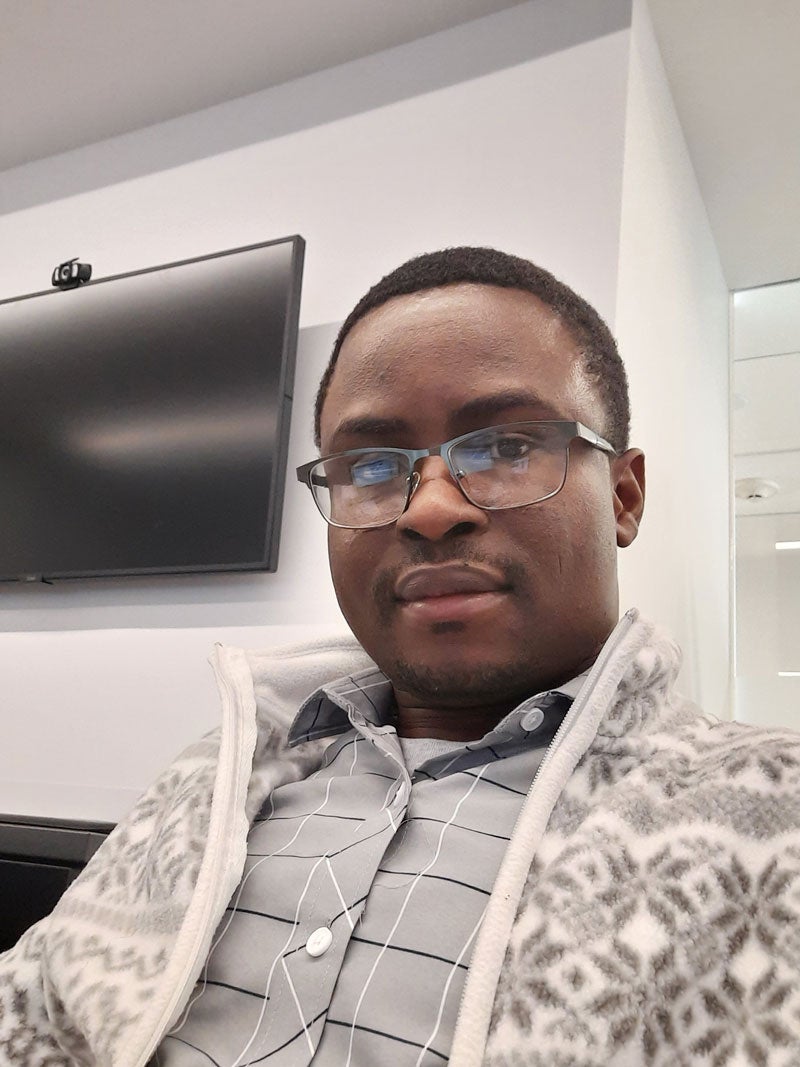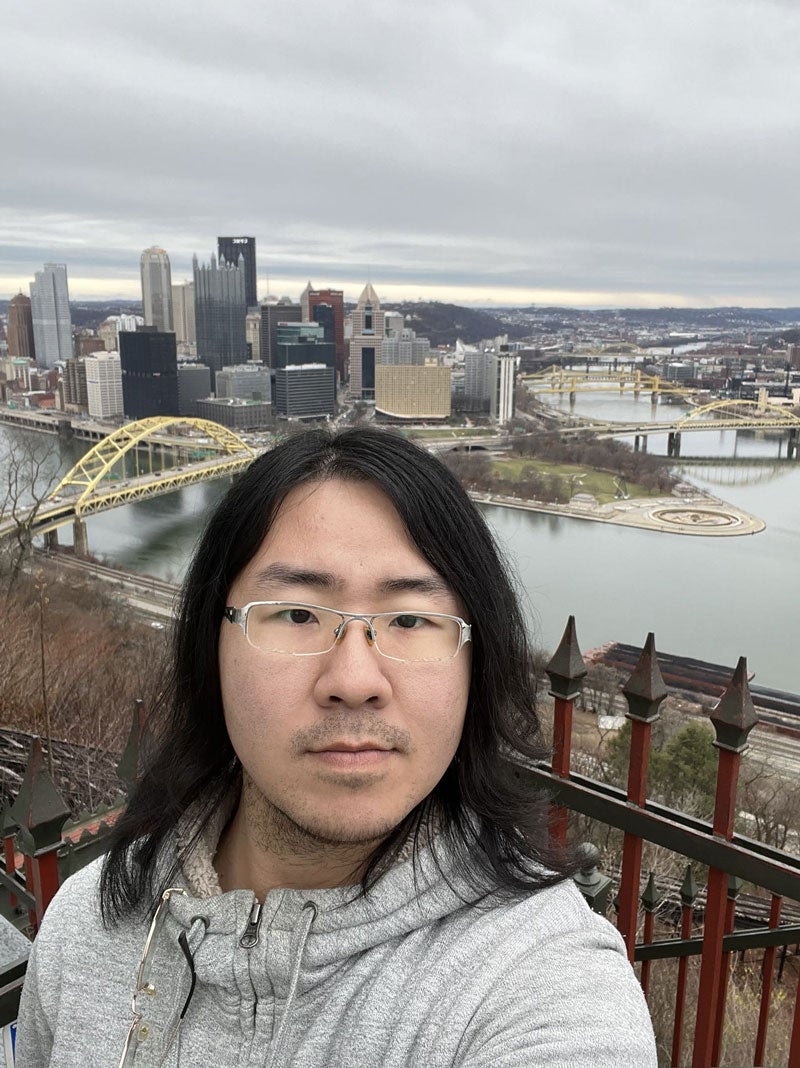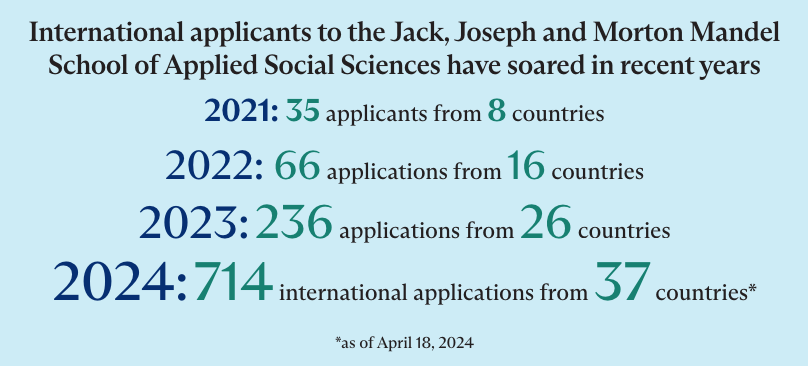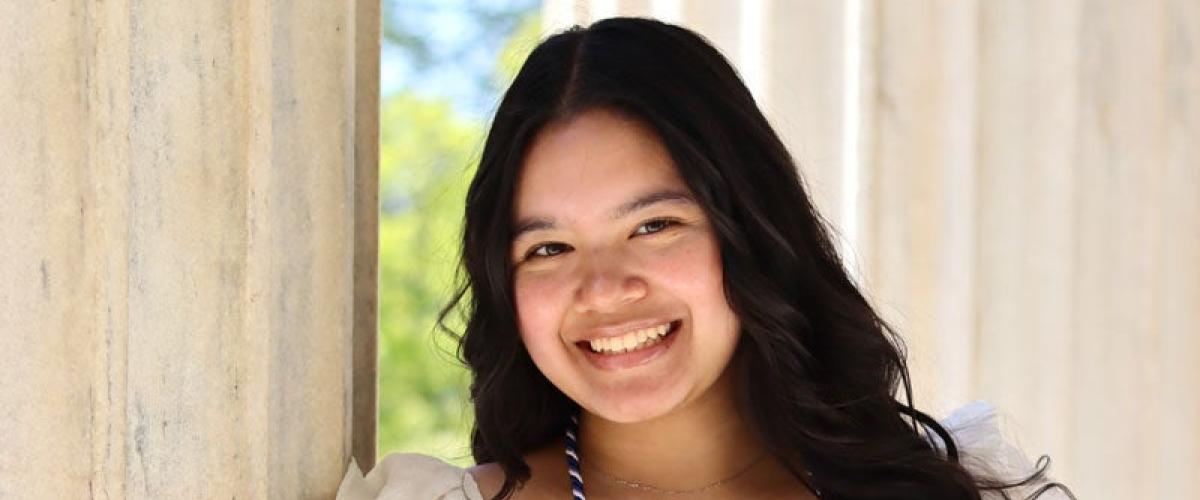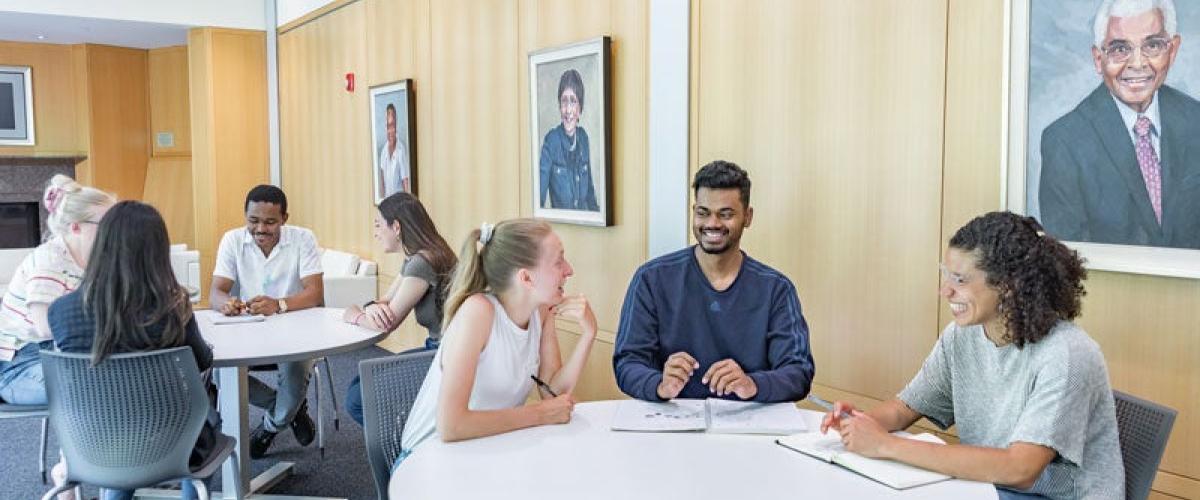International students are turning to the Mandel School to translate their passion for social work into action
By Daniel Robison
For Nigeria native Ayowole Samuel Ajiboye, volunteering with the United Nations to advance sustainable development goals in his home country sparked an interest in social work.
“I saw inequality firsthand—and the toll it could take on mental health,” he said. “It ignited a fire within me to be a catalyst for societal change and uplift those in need.”
As Ajiboye explored his educational options in social work, trusted friends passed along a recommendation: the Jack, Joseph, and Morton Mandel School of Applied Social Sciences at Case Western Reserve University. Leaving his role as a market development officer for an agricultural company in Africa, he enrolled in the Master of Social Work (MSW) program.
Now a second-year student, he’s volunteered for food banks in Cleveland and is serving his field placement with Lead Safe Cleveland Coalition—providing lead-safe workforce training and education to property owners.
“It’s beautiful being able to really integrate what I’m learning in my classes and apply it to help people,” said Ajiboye. “My time here has helped me develop skills and empathy as a change agent.”
Global magnet
Ajiboye’s experience mirrors a prevailing trend at the Mandel School. In recent years, it has seen a 400% increase in international applications.
The number of countries from which applicants originate has nearly tripled—with a notable increase in applications from regions such as East Africa (Kenya, Uganda), West Africa (Ghana, Nigeria), India and China.
To attract more interest from international students, the Mandel School has been using an array of targeted marketing tactics—such as culturally tailored communication on social media and other channels to a broad spectrum of countries. These efforts are paying off.
“We have become more intentional in terms of saying international students add to our overall learning experience,” said Kimberly McFarlin (MNO ’05, SAS ’05), assistant dean of student services and career planning at the Mandel School. “We live in a global society, and having international perspectives creates a richer educational environment and community for everyone.”
A transformative path
Dexter Voisin, PhD, knows first-hand the opportunities and challenges that come with being an international student. Born and raised in Trinidad and Tobago, his journey pursuing a post-secondary path in the United States has shaped his approach to welcoming students from abroad.
“The American dream looms large in the imagination of people all over the world, regardless of where they live,” said Voisin, the Jack, Joseph and Morton Mandel Dean in Applied Social Sciences. “I was no exception to that, and I see that in our students.”
In recent years, Voisin spearheaded an effort to increase scholarships offered to international students, which “has been instrumental in increasing their numbers,” said Voisin. “It’s reduced the barrier to many of them attending.”
This surge in applications has consequently heightened competitiveness, positioning the school to achieve its highest selectivity rate to date.
“So we’re really bringing in the best of the best,” he said, “the creme de la creme.”
From admission to graduation
While the Mandel School has a legacy of welcoming students from abroad, its leadership recently sharpened its focus on enhancing support services for international students—including specialized orientation, visa assistance, and seminars focused on cultural adjustment, such as dressing for local weather conditions and learning English idioms to navigate language nuances.
“We provide students with comfortable spaces to ask any question as they’re learning and growing,” said McFarlin. “Then they carry that learning back to the classroom and into the field.”
The approach helped China native and second-year MSW student Peijian Wang overcome initial concerns about confronting cultural differences in the U.S.
“In many ways, the school encourages us to build meaningful connections with fellow students,” said Wang. “From the beginning, I felt safe, included, and that nobody judged me negatively for what I think or say—I can always be myself.”
Wang’s initial weeks at the Mandel School reaffirmed his decision to attend. Attracted to its small class sizes and history of high rankings, he saw it was an ideal place to become a therapist.
“I’m learning how to guide people to find their own power and strengths,” he said. “It provides a sense of fulfillment for me.”
Diverse destinations
While most international students at the Mandel School choose to pursue an MSW degree, there has been a notable increase in enrollment in the Master of Nonprofit Organizations (MNO) program in recent years.
Each degree is highly versatile and offers an array of career opportunities—including counseling, community work, research, policy development and advocacy, said David B. Miller, PhD, director of international education program and chair of the Master of Social Work program at the Mandel School.
“We prepare students, no matter where they’re from, to address a range of social issues relevant in many cultural contexts,” Miller said. “Social needs that we have here are present around the world, and international students come here to learn how to intervene effectively.”
Gamaliel Muhani—originally from the Democratic Republic of Congo and raised in Kenya—is seeking an MNO degree to prepare him for a career in social innovation to address “social needs in new ways.”
He credits the Mandel School’s emphasis on interactivity in classes and with professors “who are always available for us,” he said. It’s given him a new confidence to pursue entrepreneurial ventures post-graduation.
“I always tell my friends that I’ve already had an amazing return on my time here—and I haven’t even graduated yet,” he said. “I know I’ll carry this experience with me always.”
Read more stories like this in the Spring 2024 edition of Action.



